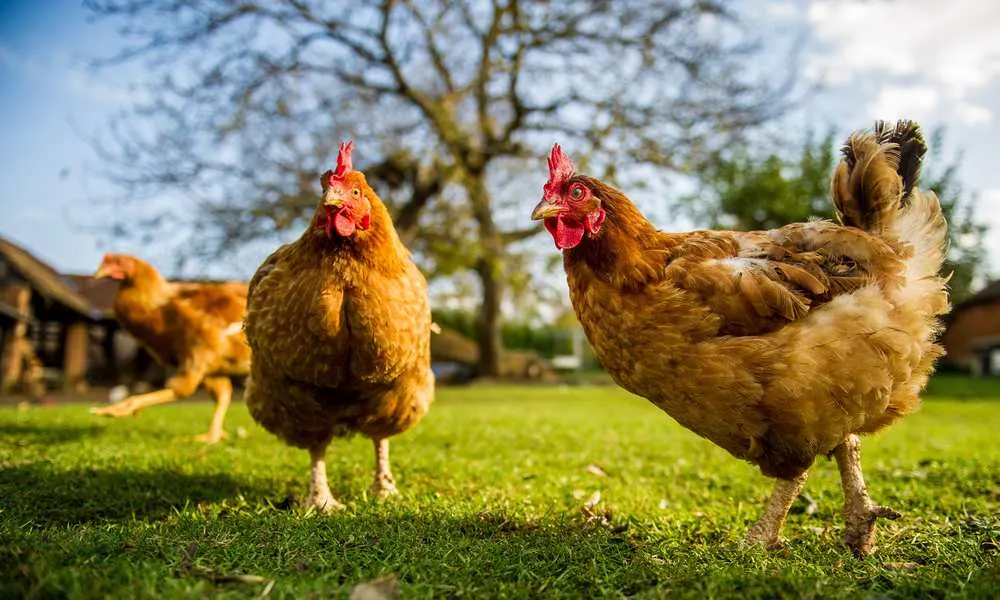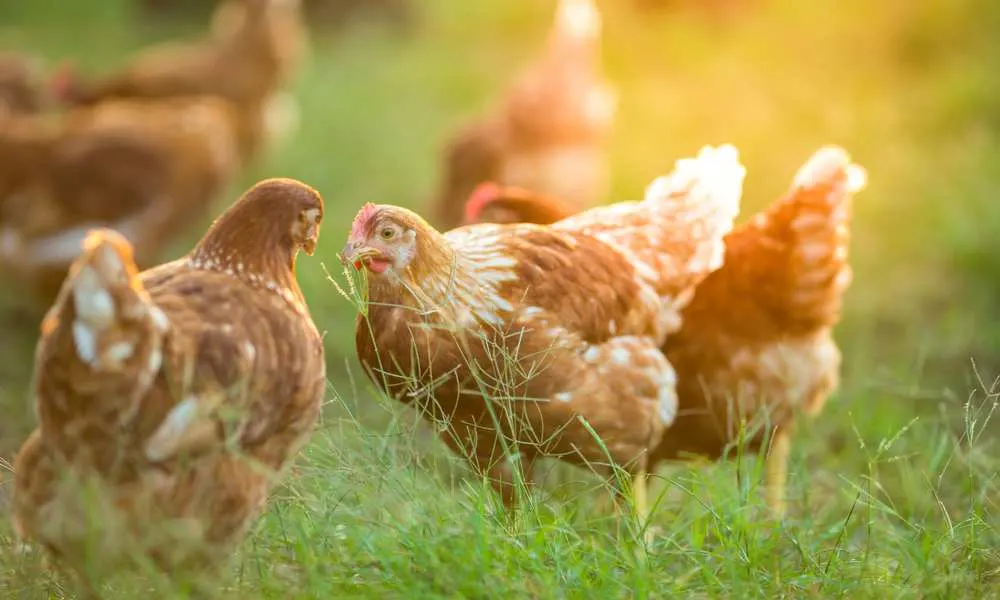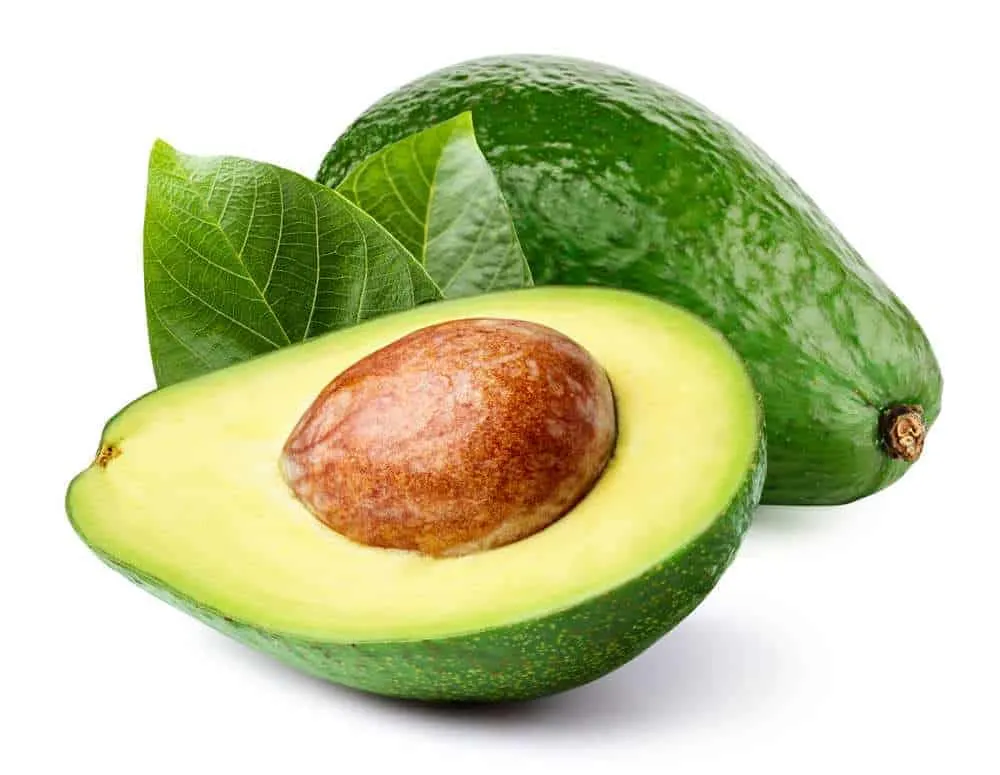While most fruits and vegetables that grow in your backyard are a healthy addition to your poultry, certain fruits can be toxic, even fatal. Is avocado one of them?
When we talk about fostering and feeding poultry, it is very important to distinguish between what we are allowed to give and what we should avoid at all costs. In many cases, these are the foods we consume on a daily basis. What about some avocados?
Can Chickens Eat Avocado?
Unfortunately, this fruit can be fatal for your chickens. These are things we must always be vigilant about. Therefore, it would be best to research a complete list of what your chickens are allowed and what they are not allowed to eat.
Stay with us and discover why avocados are one of the dangerous fruits.

Avocados – The Forbidden Fruit
Sadly, no matter how healthy avocados seem to be, they should not be on the list for your chickens. Here is the main reason why you shouldn’t feed them this.
Avocados contain persin!
Okay, but does this have to do with chickens?
Persin is a fungicidal toxin that is present in avocado’s skin, pits, leaves, and even seeds. So, it’s basically everywhere. In large quantities, this is not only dangerous to the animals we have, but it also poses a danger to us.
Humans that happen to be allergic to avocados will most likely show an allergic reaction. However, animals will suffer much worse consequences – your chickens especially.
Feeding small-sized animals like chickens avocados, or including their seeds in their meals can cause dangerous side effects. In some cases, it might even kill your chicken.
I bet you didn’t know that it was this serious, but it is. The danger rate of feeding this fruit depends on the age and quantity of your chickens.
For example, feeding small quantities to a younger chicken will probably cause some harsh side effects. It is unlikely that it will be fatal.
On the other hand, if you feed an immense amount to an older rooster or hen can kill them in a matter of days. First, they will display some symptoms after which their organism will fail to withstand the toxins in it.
Let’s take a closer look at what avocados are composed of:
| Calories | 160 |
| Fat | 14.7 gr |
| Sodium | 7 mg |
| Carbs | 8.5 gr |
| Fiber | 6.7 gr |
| Sugars | 0.7 g |
| Protein | 2 gr |
| Persin | 3.5 gr |
From the table above, you can see that there is nothing that exceeds the normal levels. However, those 3.5 grams of persin present in avocados are a lethal dose to your chicken.
Yes, by consuming an entire piece of avocado, the persin inside it can cause respiratory problems, which can lead to instant death in a matter of 20 minutes.
Avocados are also responsible for causing the following difficulties:
- Hypersensitivity – this is viewed through severe irritation of the skin and constant vomiting.
- Allergic reactions – from itching to hair loss (depending on the sensitivity)
- Liver damage – high levels of estragole and anethole can cause cancerogenic reactions and damage the functioning of the liver
- Gastrointestinal irritation – this is especially common for hens that should be laying eggs because it can completely disrupt the egg production

Other Threats
Now that we know for sure that person is present in avocados, are there other foods that share this toxic ingredient as well?
Unfortunately, there are, and these foods happen to be the most common ingredients in your kitchen.
Let’s list them:
- Chocolate, coffee, and caffeine – When you feed large amounts of these ingredients to your pets, you can expect signs like diarrhea or vomiting. The worst-case scenario would be an abnormal heart rhythm that would lead to instant death.
- Alcohol – Although this is an absurd thing to do, sometimes your chickens may get into contact with alcoholic beverages – intentionally or unintentionally. This can be extremely dangerous. Alcohol contains immense amounts of persin that can instantly kill your animal.
- Yeast dough – This may not be common knowledge, but yeast dough contains large amounts of toxic persin. When this is given to animals, it most commonly leads to severe stomach problems and excessive vomiting.
- Xylitol -Xylitol is a common ingredient in many sweets, including gums and candy that you regularly consume. Giving candy to your animals should never be an option, especially to birds because of their beak. This will not only cause choking but liver failure.
- Milk – Milk and dairy products, in general, contain dangerous amounts of lactose and persin that can leave your domestic animals with severe stomach problems.
- Onions, garlic, and chives – Onions, garlic, and chives are considered generally strong food, even for humans. Add some persin to this already toxic composition, and you get a poisonous ingredient for your chickens.
- Undercooked meat (raw meat) – Raw food can never be a good choice. Just because it hasn’t been of use to you, it doesn’t mean that it should be fed to your animals. Undercooked food prevents dilution of persin, and this can be deadly to the animals.
- Grapes and raisins – Although these small fruits may seem harmless to you, they contain high levels of toxic ingredients (persin), for example, that can cause liver failure to the animals that consume large amounts at once.
As you can see, avocados might be dangerous, but they are certainly not the only ones that are toxic. There are many more where this came from, and you would hardly suspect some of them.
From the list above, garlic, undercooked food, and alcohol can be singled out as the most dangerous and with the highest levels of persin in them.
So, before you reach for some of these ingredients and give them to your chickens as substitute food, you should look at their toxicity level first.
Better safe than sorry – being cautious will save dozens of innocent chickens.

Food Poisoning In Birds
Food poisoning is both common and dangerous, especially when it comes to domestic animals like poultry. In cases like food poisoning, the key is to notice the symptoms as soon as possible.
Here are the signs that your animal, a chicken, in this case, is suffering from food poisoning:
- Vomiting
- Lethargy
- Diarrhea
- Increased urination
- Blindness
- Tremors
- Loss of coordination
- Coma
Ingested food poisoning is the most common, and it comes from:
- Avocado
- Chocolate
- High-fat foods
- Uncooked beans
- Household plants
- Fruit pits and apple seeds
The best way to protect your animals from food poisoning is to prevent it while it’s still preventable. What does this mean?
Well, if you are running a bigger farm with hundreds of chickens in it, and you suspect food poisoning might be disrupting your business, there is only one thing you can do.
You can call the vet and request that he comes and inspects your farm.
You could also take the chicken that you fear is poisoned to him, but that would be a waste of time.
Calling a vet to come to your farm is a much better idea. That way, he will be able to “see the bigger picture” and maybe even find the source that’s been poisoning your poultry.
As for the remedy, it depends on the severity of the case.
Most commonly, a vet will prescribe a medication that should be inserted into their daily meals. In some cases, a complete change in diet is required. This may require switching from natural ingredients to 100% verified store-bought ones.
So, if you fear that the avocados you’ve been giving your chickens are causing them distress, you are probably right. So get on that phone and dial the closest vet.

Salmonella
Just like humans, chickens are susceptible to salmonella as well. The way they get it is also the same – orally. This means that the cause of salmonella lies in infected foods.
Contaminated foods are the most common source of salmonella. This means that your chickens either ate rotten food or food that is toxic to them in the first place.
The worst-case scenario would be that your chickens pecked a rotten avocado.
Salmonella comes from other sources as well. It can come from:
- Pests
- Ventilation
- Visitors
- Feed soil
- Wild animals or birds that land on the chicken coop
- Delivery trucks that are not sanitized
Unfortunately, salmonella is hugely contagious. When we consider the number of chickens in one chicken coop, you are looking at dozens of salmonella cases within minutes.
Since chickens share everything in the chicken coop, the speed of salmonella spreading increases by the minute. So, even if you noticed the signs early, there will still be some damage.
Even baby chicks can be infected with salmonella only after a couple of minutes of catching.
The worst part is that you can get salmonella from chickens too. How?
Easy. For example, if you neglect basic hygiene after cleaning the coop or after feeding them. This is the easiest way to end up with hard salmonella symptoms yourself.
Be careful if you are over 65 or you have a weak immune system. People who are already dealing with some chronic disease are in greater danger because this infection progresses more quickly.
Are there ways in which you can reduce the possibility of salmonella with your poultry?
Yes, these measures include:
- Good biosecurity
- Good management of the flock
- Vaccines (if they are available)
So, let’s say that your chickens got infected with salmonella despite all your efforts.
What do you do now?
Salmonella is usually treated by administering medication – antibiotics in particular. However, you shouldn’t do this at your own risk.
Your local veterinarian is in charge of deciding how salmonella should be treated. If the case is not too serious, he might opt for inserting some supplements in your chickens’ dietary meal.
Vaccination is also one of the options for treating this disease. However, you should first check with your vet if their practice has vaccines at their disposal.
Vaccination is the most reliable preventative, and the best time to vaccinate your chickens is as soon as you buy them.
Experts advise the vaccination to be performed between 22 and 26 weeks of age. After that, the vet should come and check on your poultry every 15 weeks (approximately).
Here are a couple of tips for you and your chickens:
- Inspect the eggs that you take from your chickens before cooking them
- Wash your hands before and after coming in contact with anything in the chicken coop
- Avoid bringing the chickens in close contact with your face
- Bring in a vet to check the health of your chickens regularly
- Immediately isolate the infected cases
- Buy chicken feed and equipment from trusted sources
- Fumigate chicken excrement
- Include probiotics in your chickens’ diet only if the vet advised you so
- Keep any indoor pets you have (cats and dogs) away from chickens
- If you have kids, don’t let them spend too much time close to the chicken coops
Even though chicken food poisoning is common, taking small steps will help prevent it!

